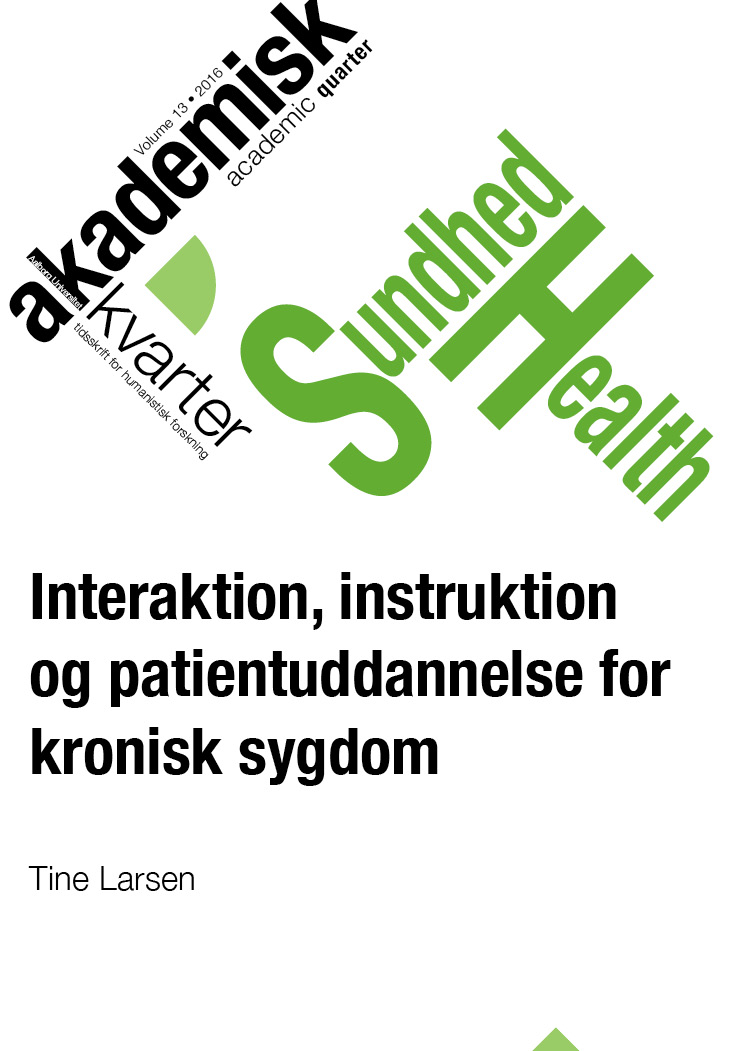Abstract | Abstract
The use of health technologies for self-management of chronic disease has in recent years become increasingly common in Denmark. At the same time, disease-specific patient educations have been created to ensure that patients possess the knowledge and skills necessary to assume the daily responsibility for their own disease. While prior research mainly has sought to document socio-economic and treatment-related benefits of self-management, the current paper presents findings from a recently completed conversation analytic project, focusing specifically on the interaction between patients and instructors (nurses) during the patient education training sessions. Describing and comparing two prominent instructional practices, explicating their relative benefits and challenges with respect to the institutional goal of training the patients, the paper seeks to illustrate one way that interactional insights may be used to support the continued use and development of self-management in Denmark.
